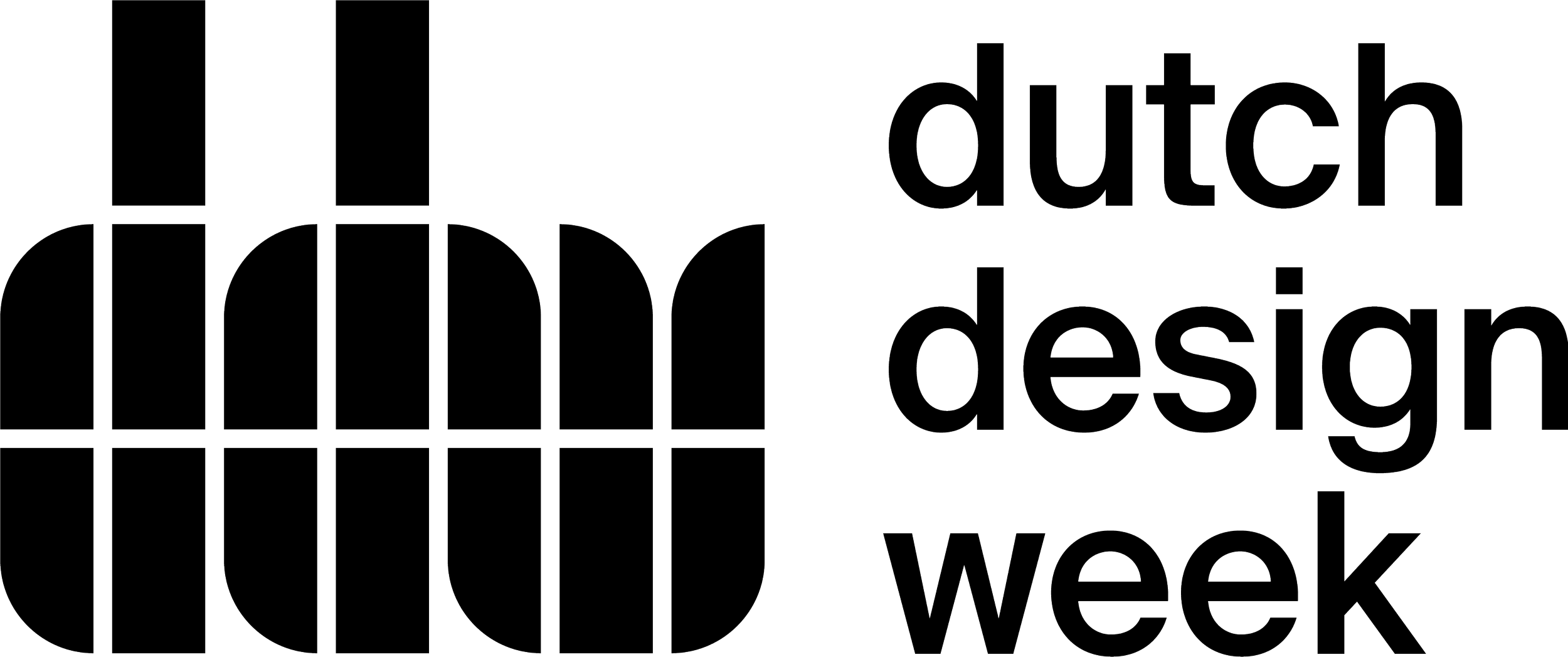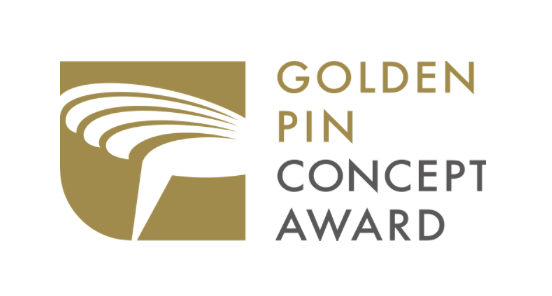BioBrew is an affordable, sustainable coffee wastewater filtration system designed for small coffee farms.
Using vermifiltration, a natural, earthworm-based aerobic treatment, BioBrew effectively reduces environmental impact while improving water quality and soil health.
Why Coffee Pollution?
Coffee pollution is an often-overlooked issue in the coffee industry, primarily caused by wastewater generated during the coffee washing process. The two key challenges are excessive water consumption and environmental contamination.
-
Some wet-milling processes use up to 1,200 liters of water or more for every 45 kg (100-pound) bag of coffee cherries, yielding as little as 8 kg of export-ready green coffee.
-
Coffee wastewater, also known as honey water, is a major pollutant in local water sources. It lowers pH levels and creates anaerobic conditions that harm aquatic life. The mucilage is rich in sugars and pectin, which ferment into acetic acid when discharged into waterways. Additionally, coffee pulp (cascara) makes up about two-thirds of the coffee cherry’s weight. While it’s commonly composted, some farms discard it near fields, releasing caffeine- and alkaloid-rich leachate that can damage soil health.
-
Technology & Maintenance: A key issue with current solutions like the SMTA system is poor maintenance, leading to overflows, blockages, and low pollutant removal efficiency. Limited technical support and feedback from system providers further frustrate coffee producers.
Economic: Most coffee farms in Cauca cannot afford wastewater treatment systems, given their small scale and production levels. Additionally, unstable electricity and water supplies make conventional solutions impractical.
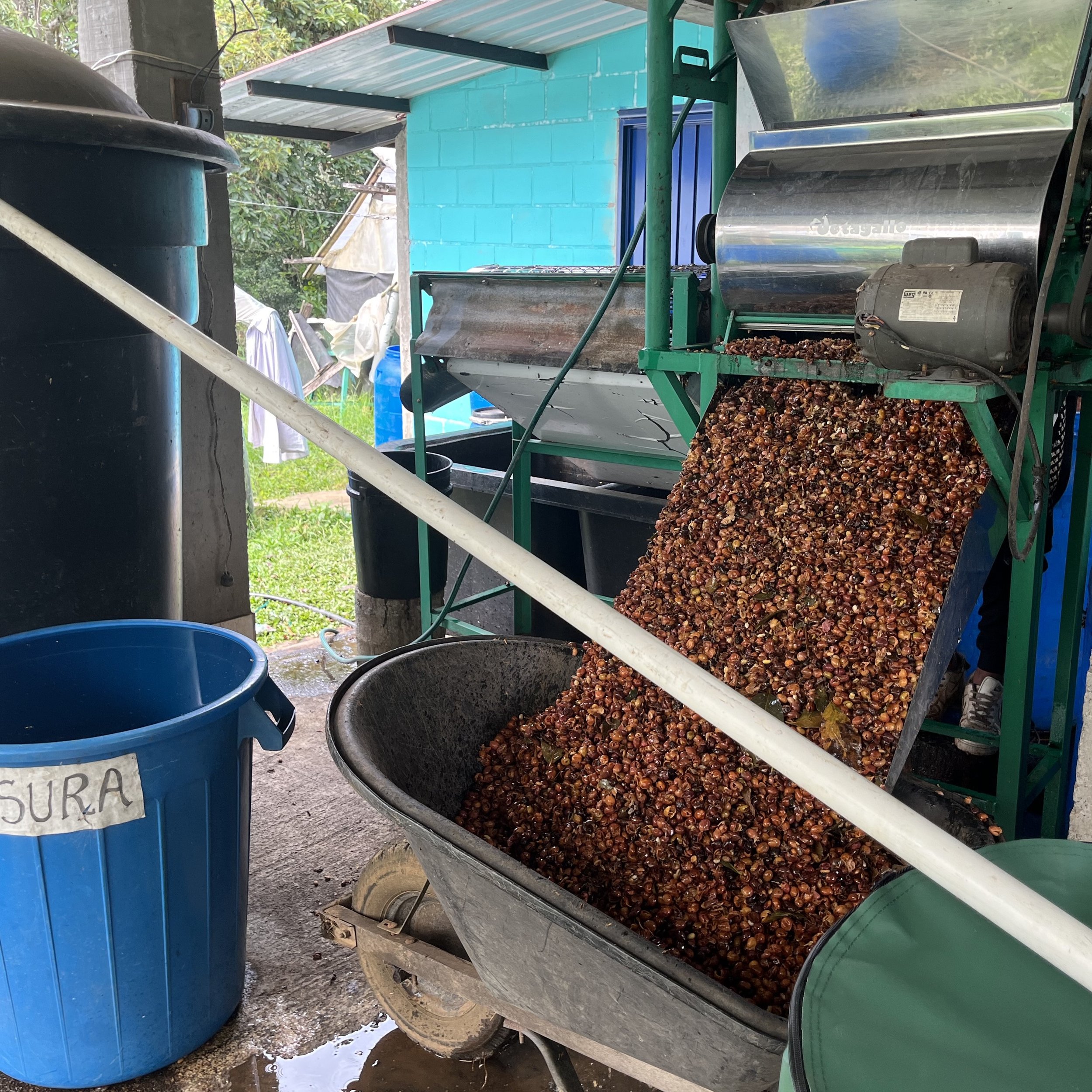
Depulping, Finca Patio Bonito
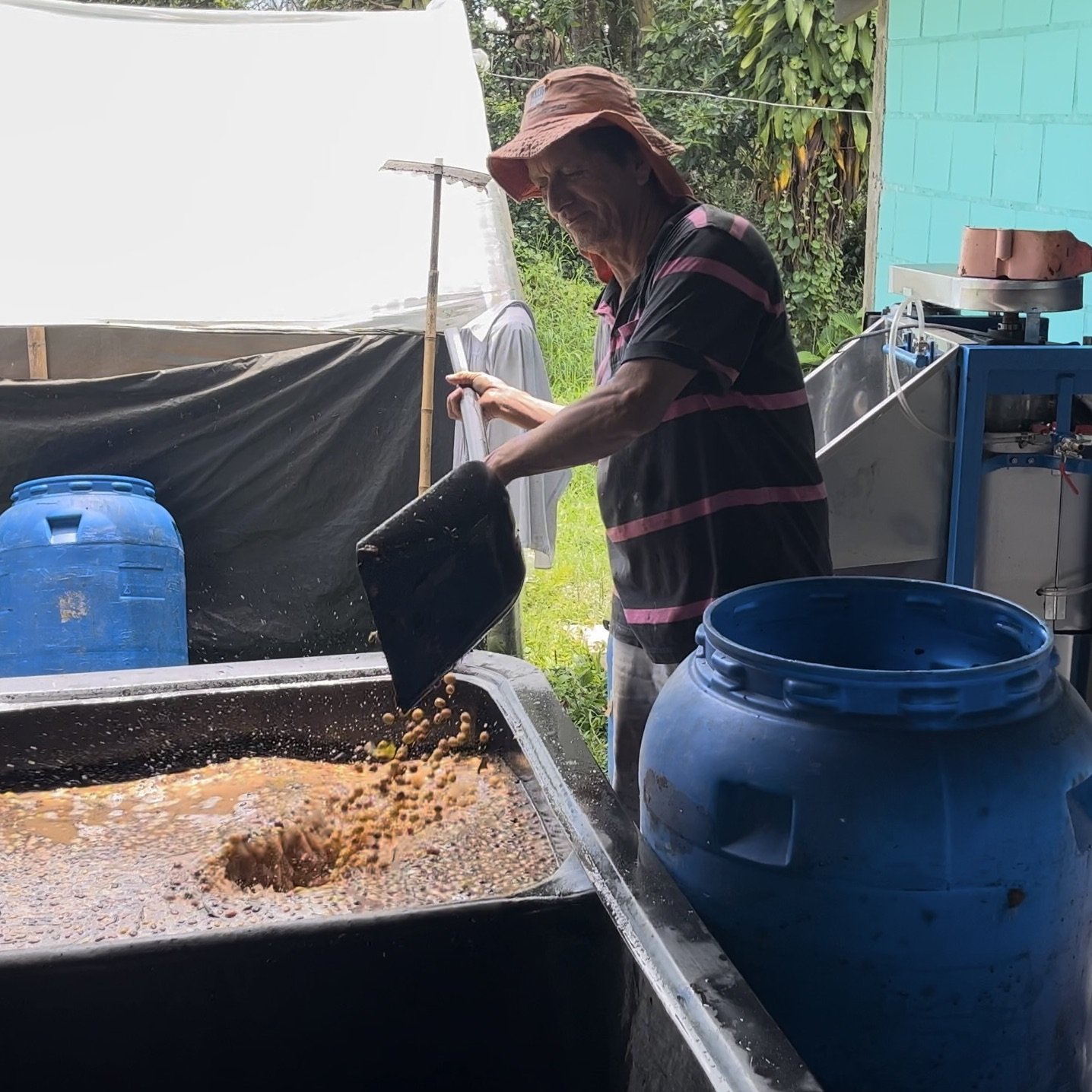
Coffee cherry washing and sorting, Finca Patio Bonito
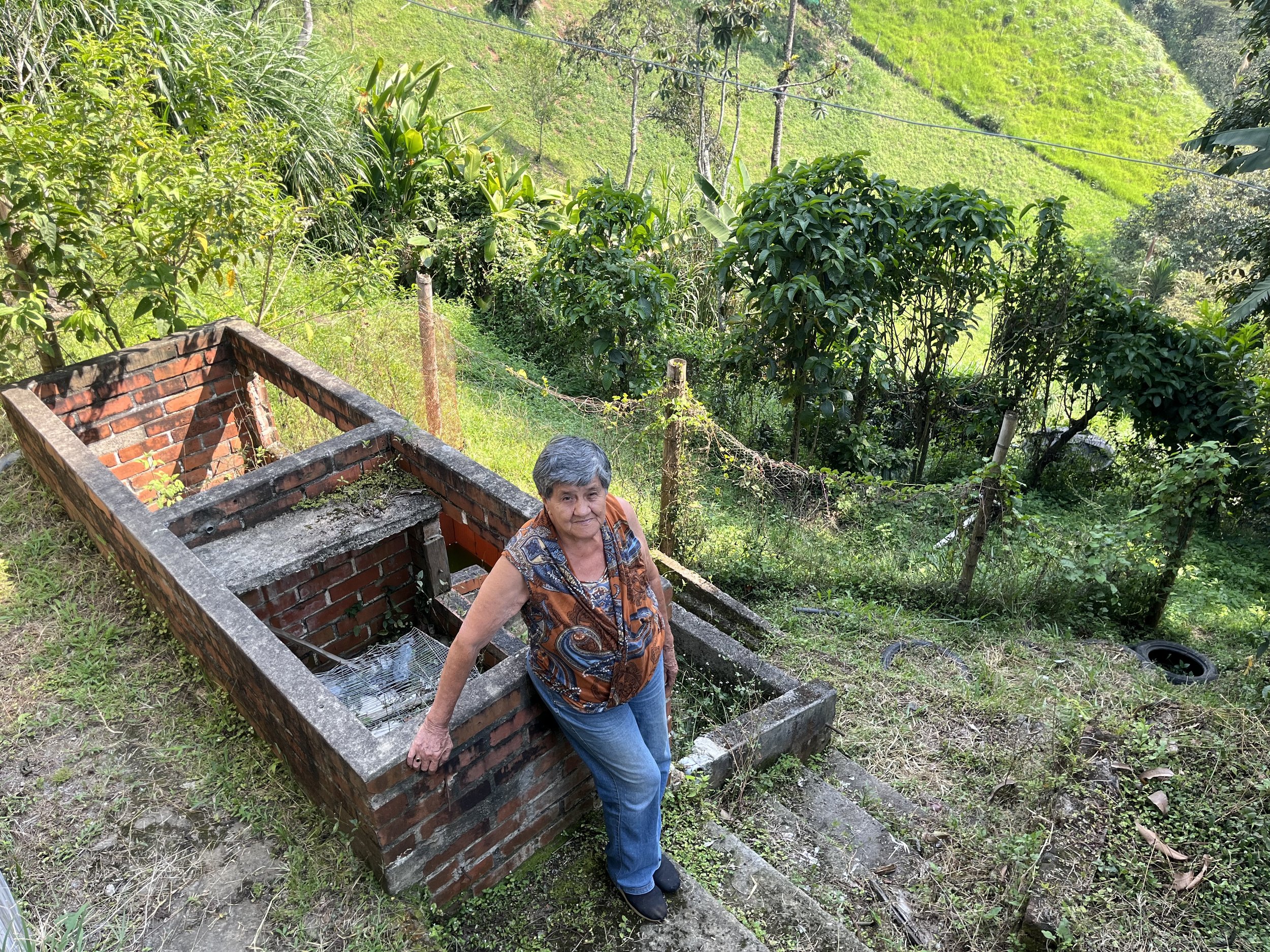
La Alejandria and the abandoned water treatment system, Caldono, Cauca
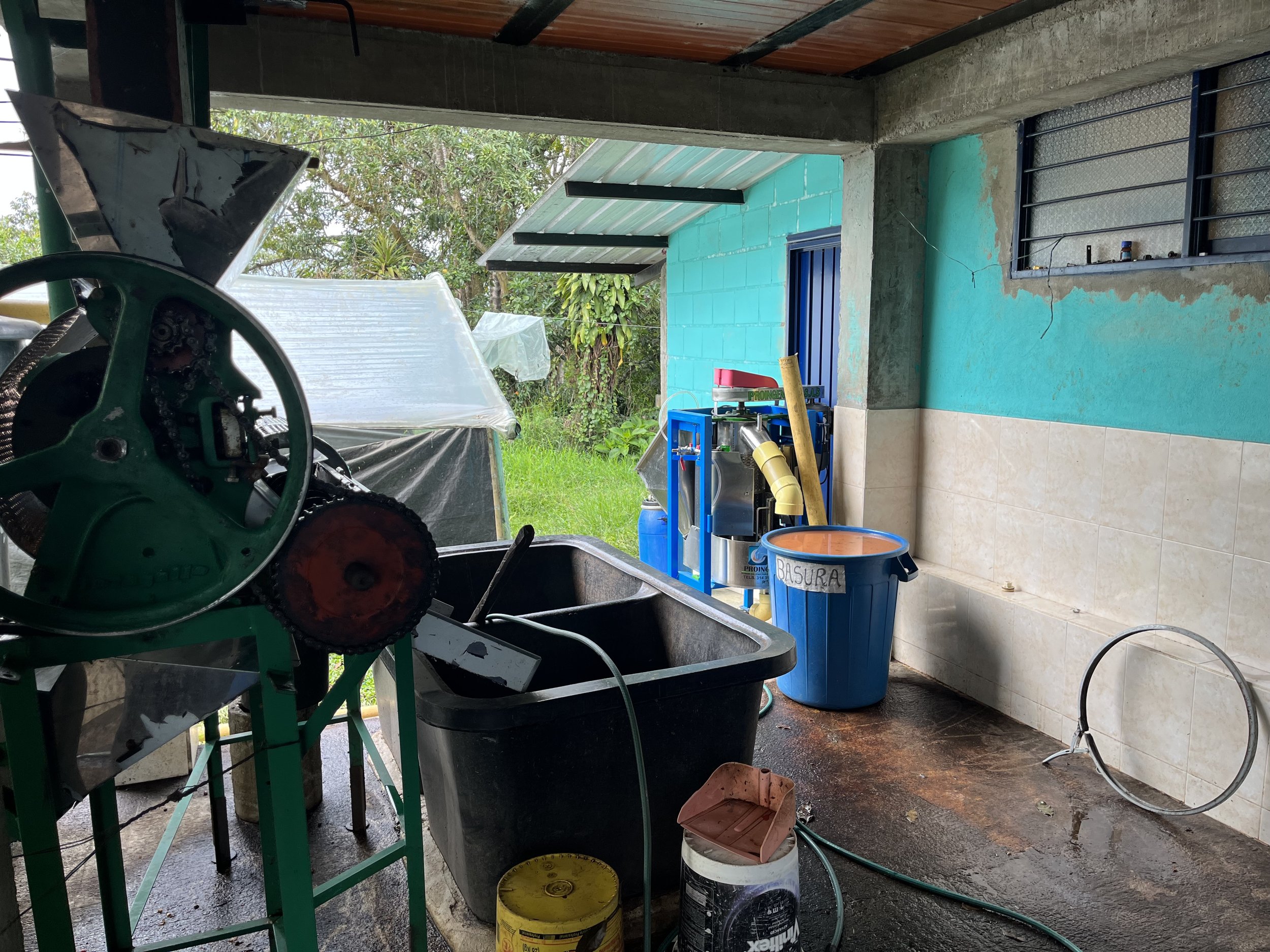
The washing station, Finca Patio Bonito
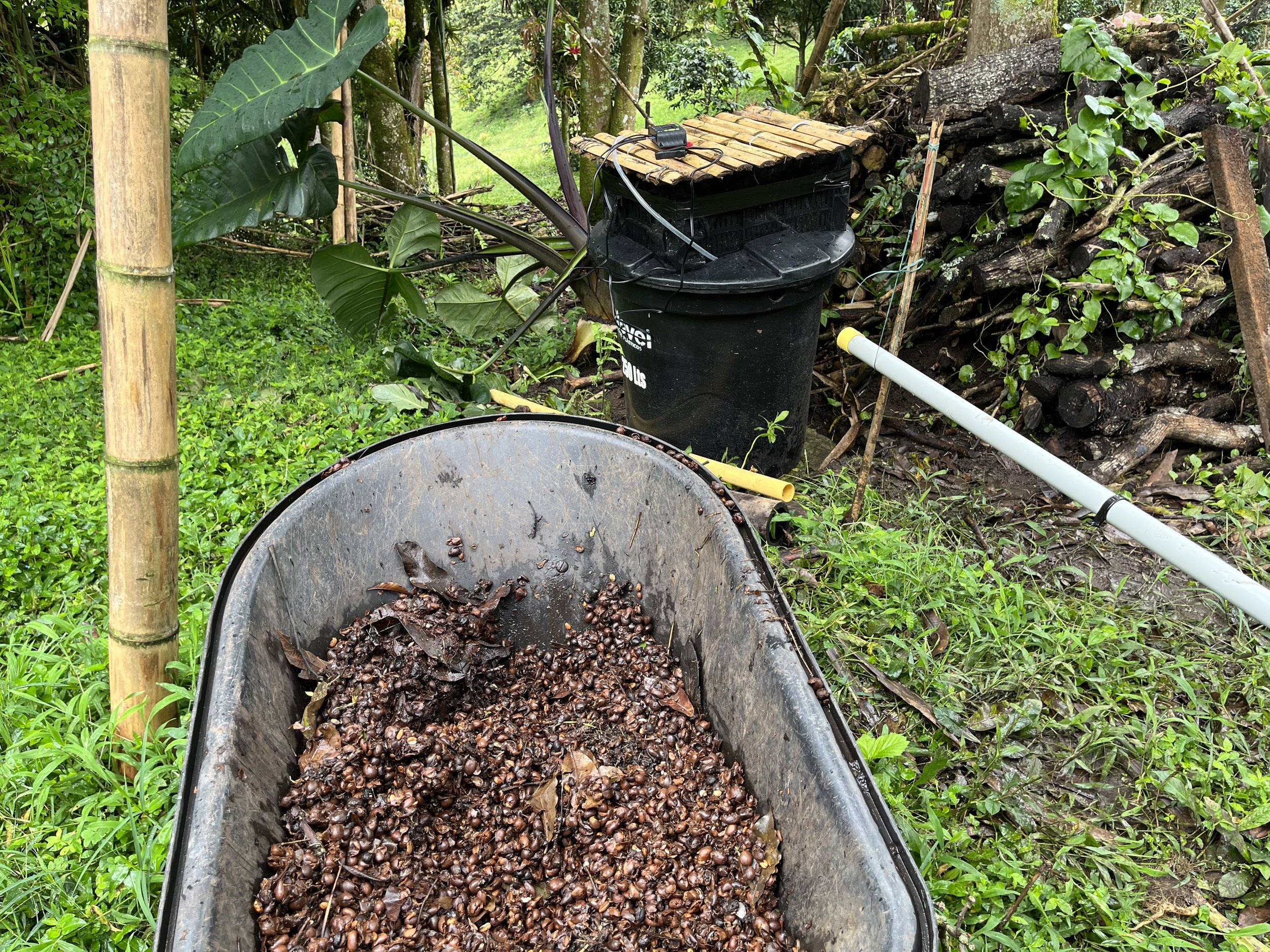
The fresh coffee cascara, Finca Patio Bonito
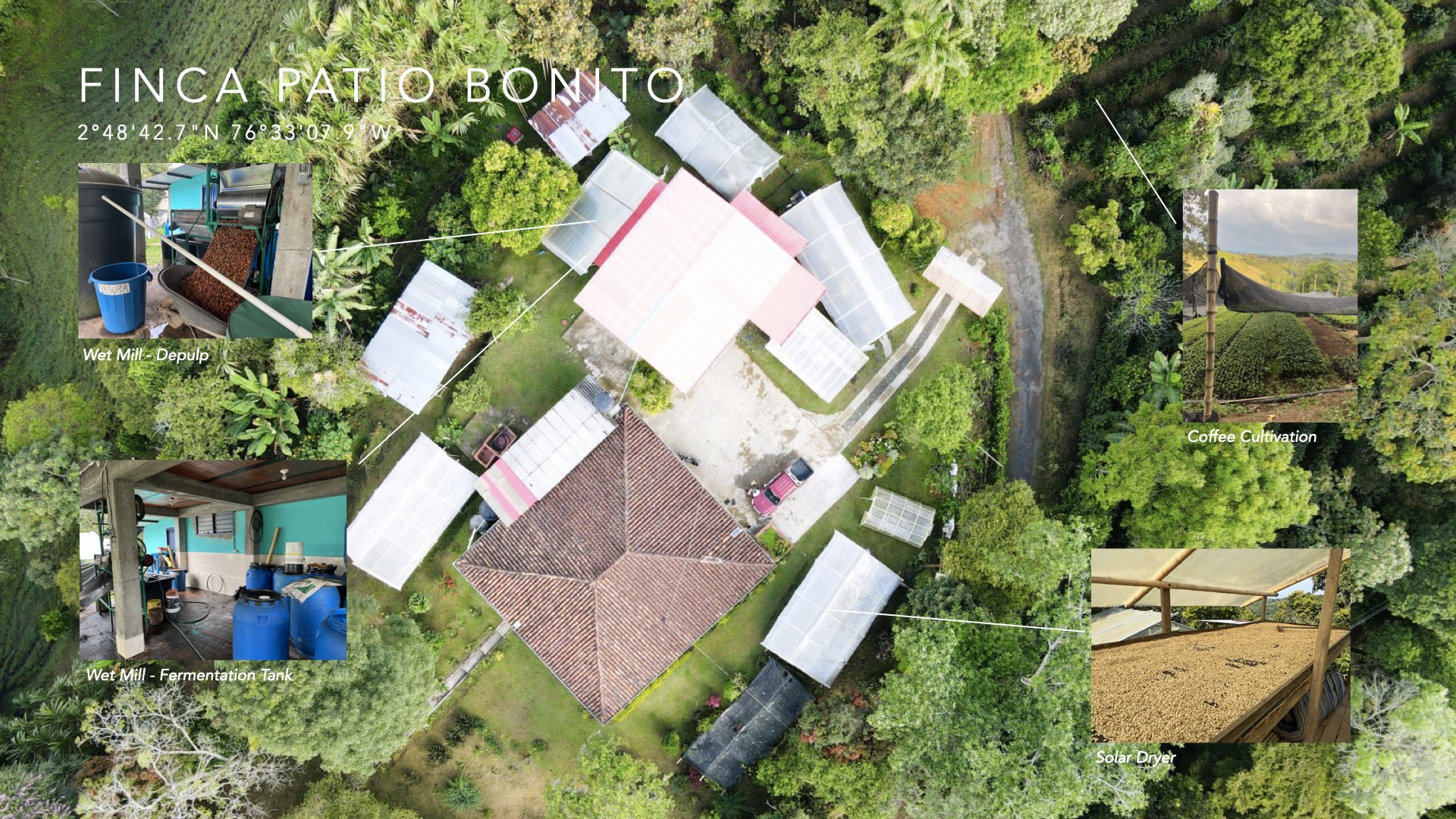
The map of Finca Patio Bonito
Interview
Interview with Rodelfi Betancurt from El Mirador Coffee Farm, Caldono, Cauca — Insights on Coffee Farming and Sustainable Practices.
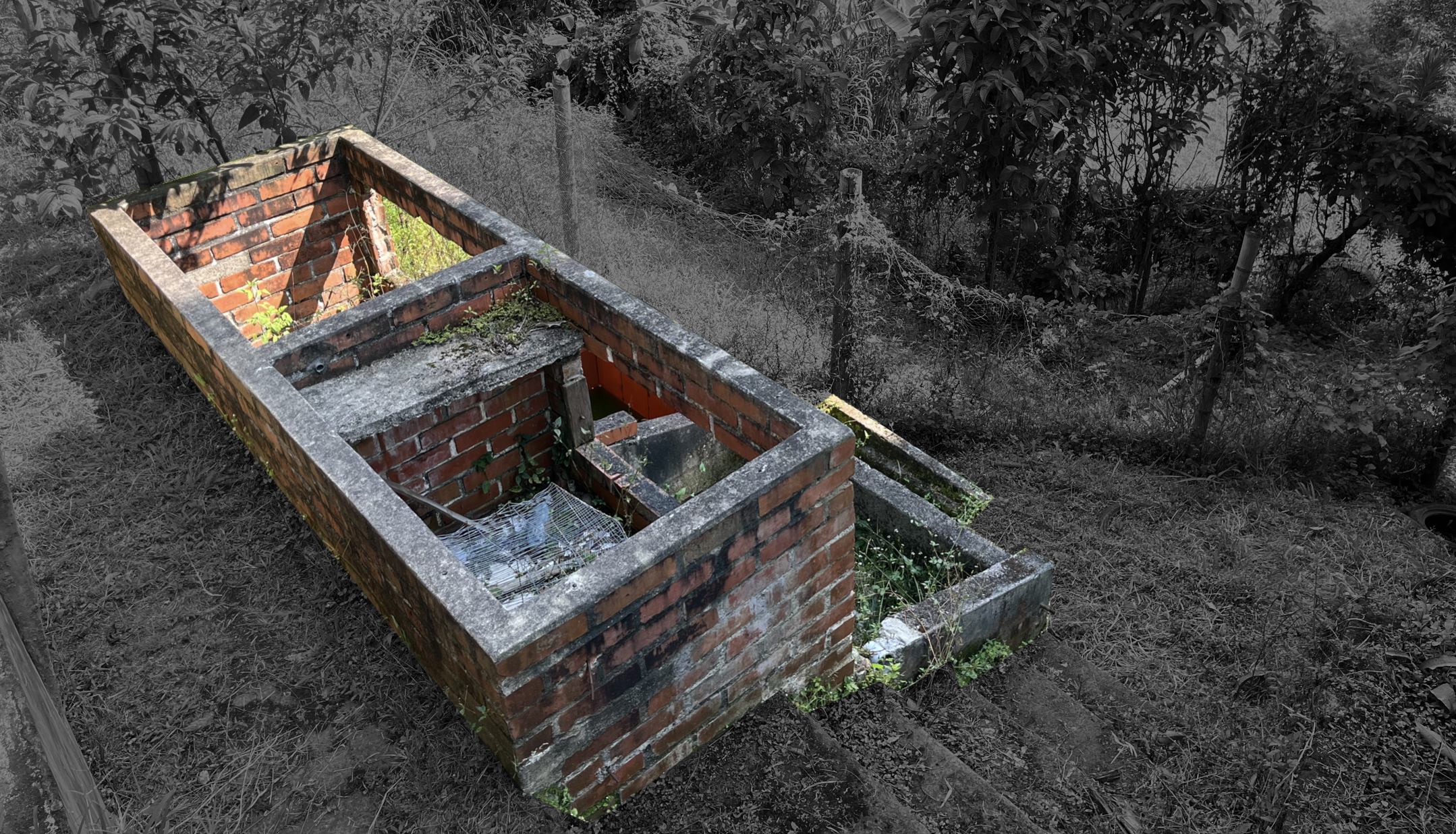
Designed for small coffee farms
In Colombia’s Cauca Department, renowned for its specialty washed coffee, 99.4% of coffee farms are considered smallholders. Most producers work independently, typically owning just one hectare of coffee land.
Our Technology
Vermifiltration* is a sustainable biological treatment process that uses earthworms and microorganisms to break down and remove organic compounds from wastewater.
*Vermifiltration is a biological wastewater treatment process where earthworms and microorganisms work together to break down and remove organic compounds from the water.
A series of experiments were conducted to validate worm dynamics and tolerance to honey water and cascara. Comparative tests showed that vermifiltration outperformed systems without worms, improving water quality by raising pH, reducing °Brix, and enhancing water permeability.
Tanque Tina
This is where the coffee washed. Usually generating 0.5m3-1m3 honey water in 2-3 days at small farm.
Spray & Circular Tank
In the second filter tank, organic matter is further filtered and the effluent is stored so that it may circulate inside the tank until it reaches its full capacity.
Compost Tank
The first filter tank aims to catch most of the particles from the honey water and also help compost the cascara (provide the organic environment for the worms). Moreover, the worm can improve the drainage of the system by digesting most of the solids, thus preventing blockages.
The first prototype in Pescador, Colombia
This is a system can compost the coffee cascara and purify the fermentation waste water at the same time.
Using the solar panel to power the spray system. Due to its modular design, the system can be expanded in the future.
Earthworm-powered treatment system
The vermi tank in BioBrew uses earthworms and microbes to biologically purify coffee wastewater, transforming organic waste into vermiwash.
Demostration
Thanks to
Paola Trujillo and her family, Finca Patio Bonito, Coffee Producer in Cauca, Colombia
Prof. Michael Templeton, Civil and Environmental Engineering, Imperial College
Dr Laure Sioné, Civil and Environmental Engineering, Imperial College
Elsa Germain, Civil and Environmental Engineering, Imperial College
Nestor Campo, Member of CAFICAUCA, Colombia
Lucia Solis, Coffee processing expert
CATA Export, Green coffee export / dealer
Jon Townsend, AST & Adviser
And
Alma Castro, Finca La Sierra, Cajibío, Cauca / Olga Lopez, La Alejandria, Caldono, Cauca / Hugo Trujillo, Las Orquídeas, Caldono, Cauca / Rodelfi Betancurt, El Mirador, Caldono, Cauca / Camila & Blanca Trujillo, Finca La Colina, Caldono, Cauca / Merly Joyas, Los Pinos, El Tambo, Cauca / Richard Velasco, El Porvenir, El Tambo, Cauca














